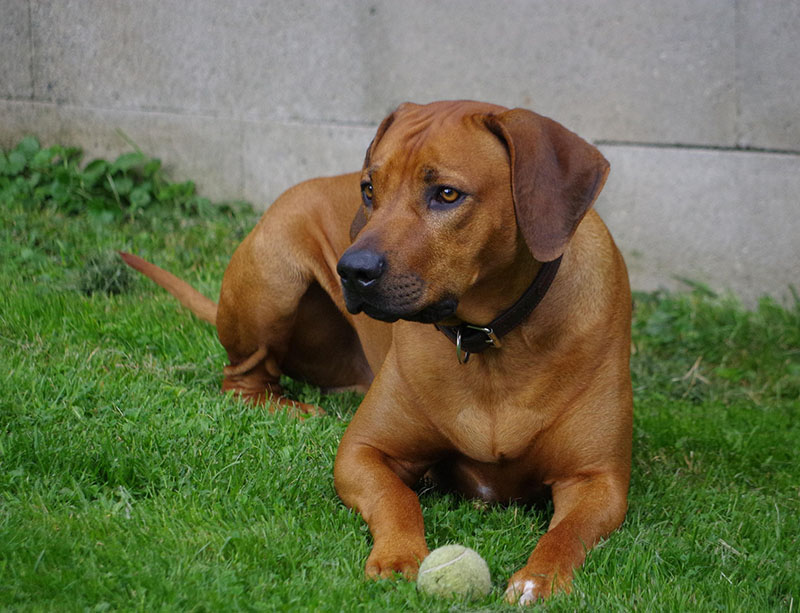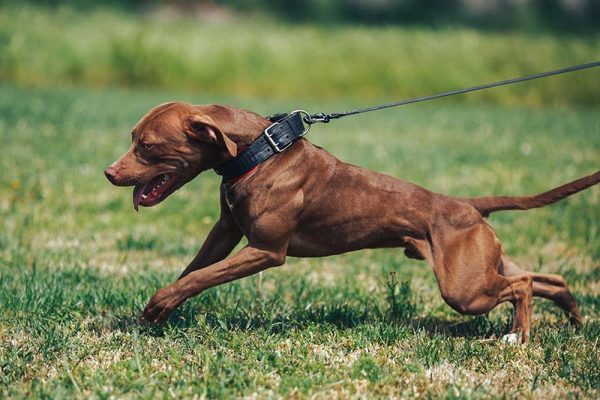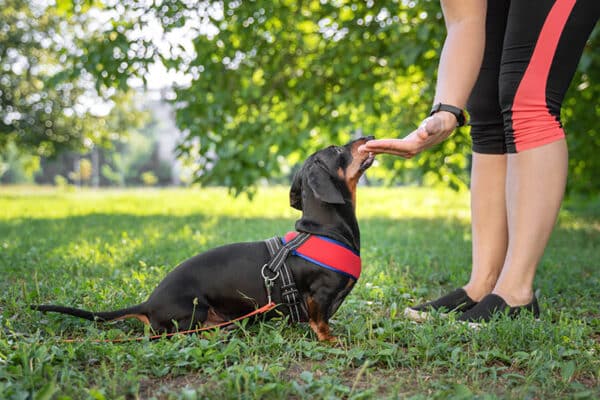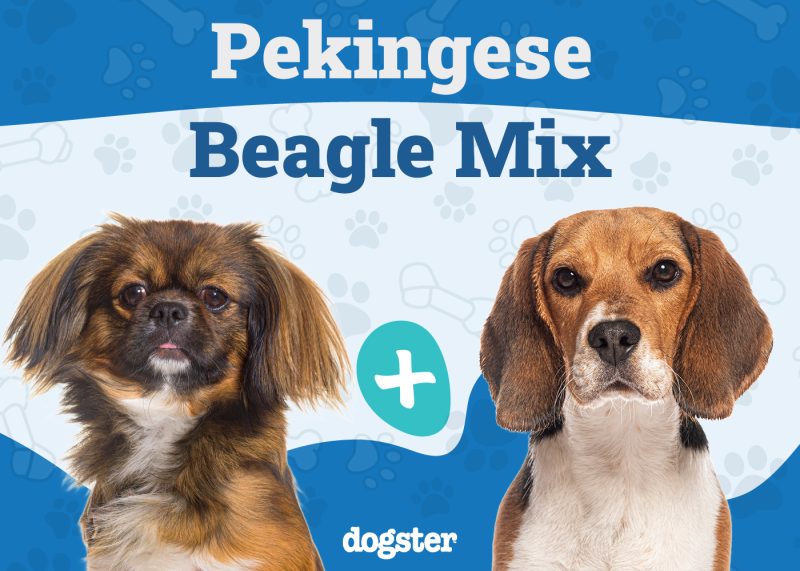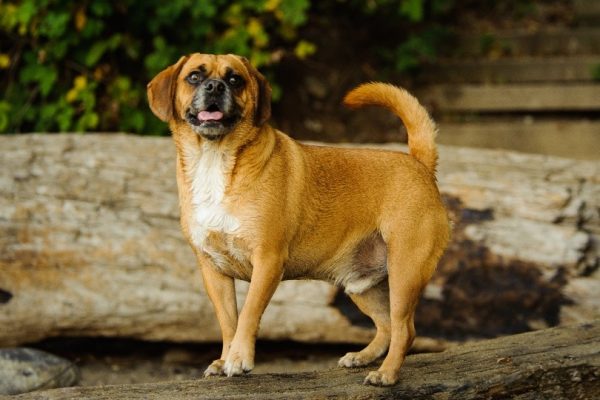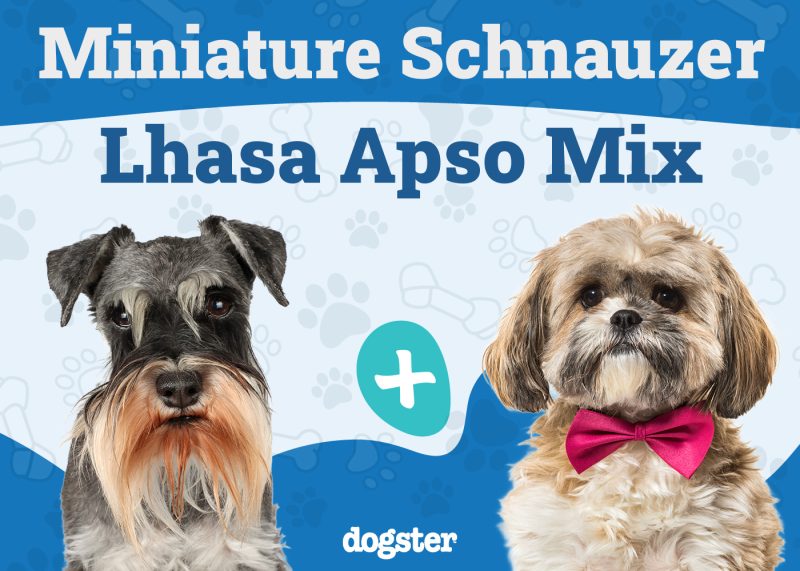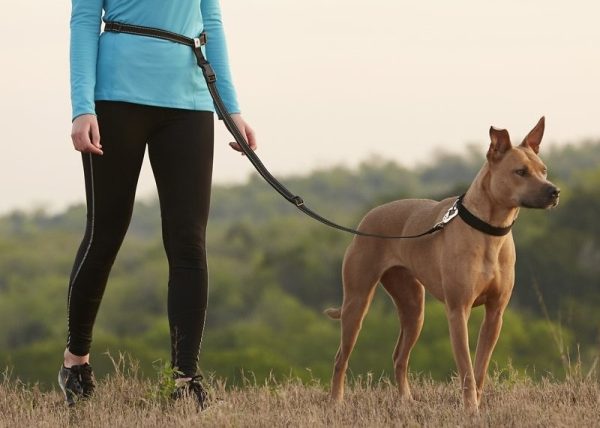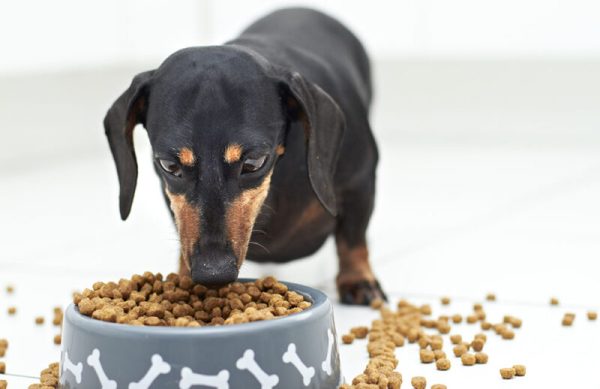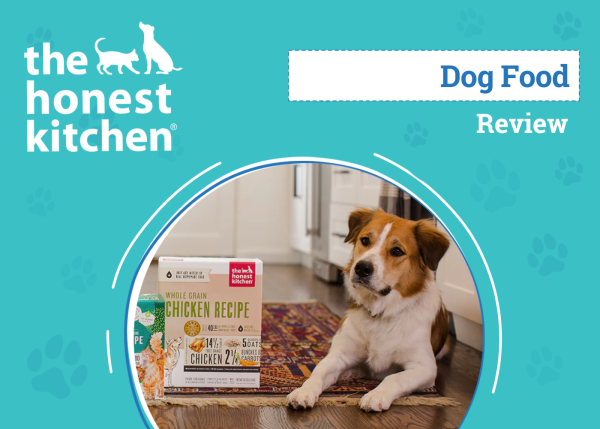In this article
View 3 More +The Rhodesian Ridgeback is a well-known breed of scent hound originating from South Africa. They were taken to Zimbabwe (previously known as Rhodesia) to hunt very large game, mostly using their noses and long legs to hunt Lions! The Ridgeback is a hardy, healthy breed that can live for a long time for its size, specifically 10 to 13 years. We’ll explore how long these loyal, independent dogs live and what factors could affect their lifespans.

Rhodesian Ridgeback Average Lifespan
The Rhodesian Ridgeback lives for an average of 10 to 13 years, with most adults at least reaching the age of 10 if they’re healthy. A few health problems commonly affect Ridgebacks that can affect their lifespan, but most adults enjoy a relatively long life compared to other large-breed dogs.
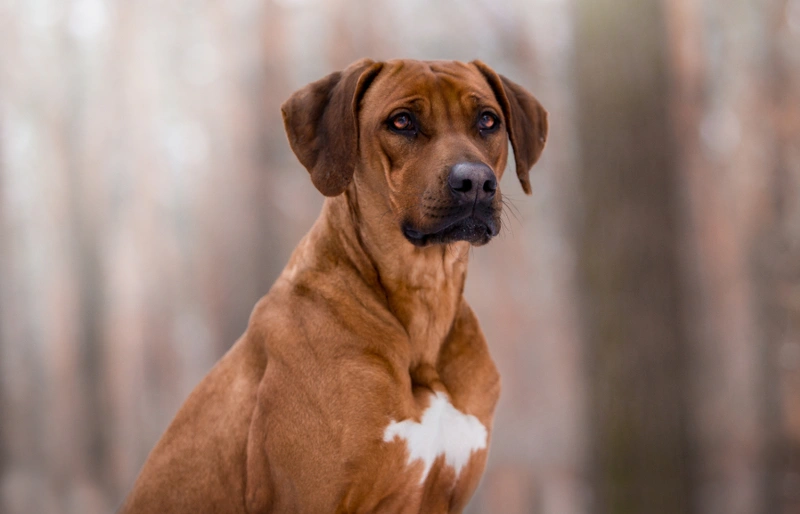
How to Care for Your Rhodesian Ridgeback for a Long Lifespan
Several factors affect a Rhodesian Ridgeback’s lifespan, from puppyhood to old age. Diet and nutrition, environmental factors, and healthcare can all impact a dog’s longevity, so we’ll take you through how to care for your Ridgeback to give them the longest life possible.
Feeding & Diet
Two parts of diet and feeding can affect the lifespan of a Rhodesian Ridgeback: what the dog is fed and how much it is fed. Nutrition plays a massive part in the overall health of a Rhodesian Ridgeback, particularly as they’re a large breed that needs adequate nutrition from day one to remain healthy.
Puppy
Puppies need lots of calories, protein, and nutrients to grow. Large breed puppies need high-quality proteins to help facilitate the massive amount of growth they experience; your Rhodesian Ridgeback puppy’s diet should contain at least 22% protein to give them the building blocks for all that growth.
Large pups like the Ridgeback shouldn’t grow too fast; puppies that grow too fast or have too many calories can have bone and joint problems when they’re older, affecting their lifespan and quality of life. You have to be cautious not to overfeed your Ridgeback puppy since too much food can also put a strain on bones and joints, which causes painful and life-limiting problems as they age.

Adult
Adult Rhodesian Ridgebacks need adequate nutrition to give them the energy they need to run around (which Ridgebacks love to do!). Adult diets should be based on weight maintenance and performance (for working dogs), so considering your Ridgeback’s exercise and activity level is key. Most Rhodesian Ridgebacks are very active, so an adult large dog diet fed to their ideal weight is a good place to start. A high-quality, high protein, and low carbohydrate diet is the best, but make sure to include all the major food groups (including whole grains) if your dog has no allergies.
Keeping your Rhodesian Ridgeback in good shape is the number one factor when maximizing its life span. Obesity in dogs is rising, with over half of dogs in the US being classed as obese. Even a small amount of extra weight on your Ridgeback can decrease their life span by 2 years, so keeping them at their optimal body condition is vital to helping them live longer.
Environment
A clean, warm, and dry environment that is stress-free is important in maximizing your Ridgeback’s lifespan. Dogs who are stressed or have experienced traumatic events such as being lost, living in a shelter, or living in an environment that causes them fear or anxiety have been shown to have a decreased lifespan. All these factors can cause physiological and behavioral problems. Unsanitary environments can also decrease a dog’s lifespan. Keeping your Ridgeback calm, happy, and in a clean environment can help maximize its lifespan and reduce the risk of health or behavioral problems.
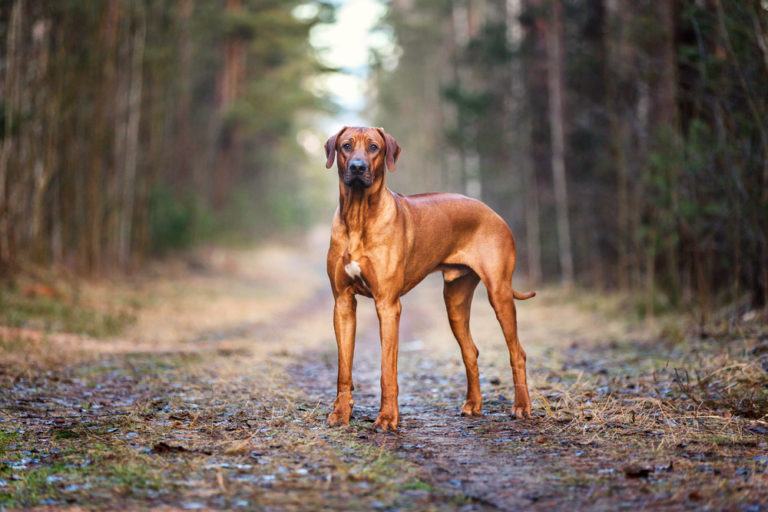
Socializing
Socializing is very important for all dogs, especially large, independent breeds like the Rhodesian Ridgeback. Behavioral problems stemming from a lack of proper socialization can lead to early death in any dog. If your Ridgeback is properly socialized from a young age (before 16 weeks), they’ll be less likely to display problem behaviors such as fear aggression. This lowers their stress levels and reduces the likelihood of behavior-based euthanasia.
Neutering & Spaying
Neutering and spaying your Rhodesian Ridgeback can have more benefits than just stopping them from having more puppies! Spayed and neutered dogs live longer since they are less likely to develop certain cancers or illnesses. According to studies, male neutered dogs live 13.8% longer than un-neutered males, and spayed females live a staggering 26.3% longer than non-spayed dogs. Spayed female Ridgebacks have a reduced risk of mammary and uterine cancers (among others) and pyometra (a womb infection that can be deadly). Neutered male Ridgebacks have no risk of testicular cancer and a reduced risk of prostate cancer.
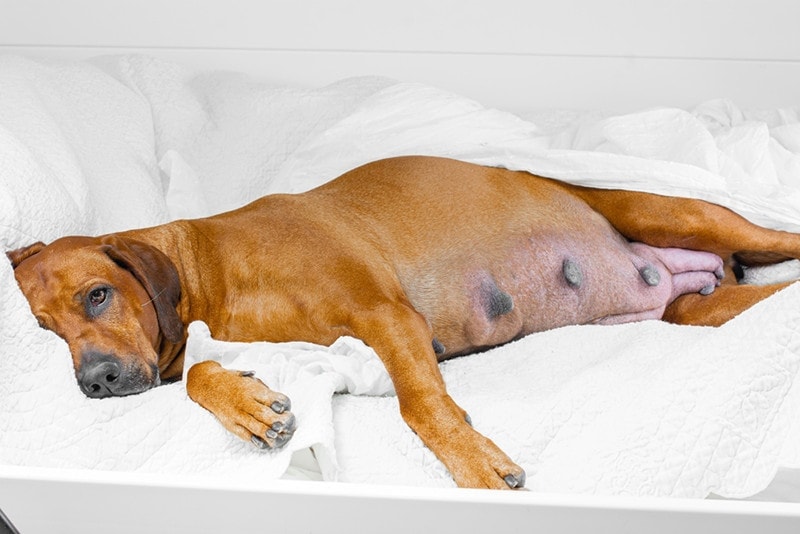
Healthcare
Keeping up with routine care such as grooming, tooth brushing, regular vet checkups, and vaccinations can increase your Rhodesian Ridgeback’s lifespan. Vaccinations are very important for dogs and puppies to have since many preventable diseases, such as parvovirus and canine distemper, can kill. Regular checkups with your veterinarian can help detect problems or illnesses in your Ridgeback, such as cancer, which are treatable or manageable if detected early.
Dental health is also directly linked to longevity in dogs, and the bacteria in the mouth associated with plaque and tartar can directly contribute to heart, liver, and kidney problems in canines. Severe dental disease will affect your Rhodesian Ridgeback’s quality of life and can reduce their lifespan significantly.

The Life Stages of a Rhodesian Ridgeback
The Rhodesian Ridgeback starts life as a puppy and will grow rapidly over two years until they reach physical maturity as an adult. Adulthood in Ridgebacks lasts until around 8 years when most large breeds are considered elderly. Elderly (or senior) Rhodesian Ridgebacks commonly live between 10 and 13 years, depending on the factors we’ve discussed above.
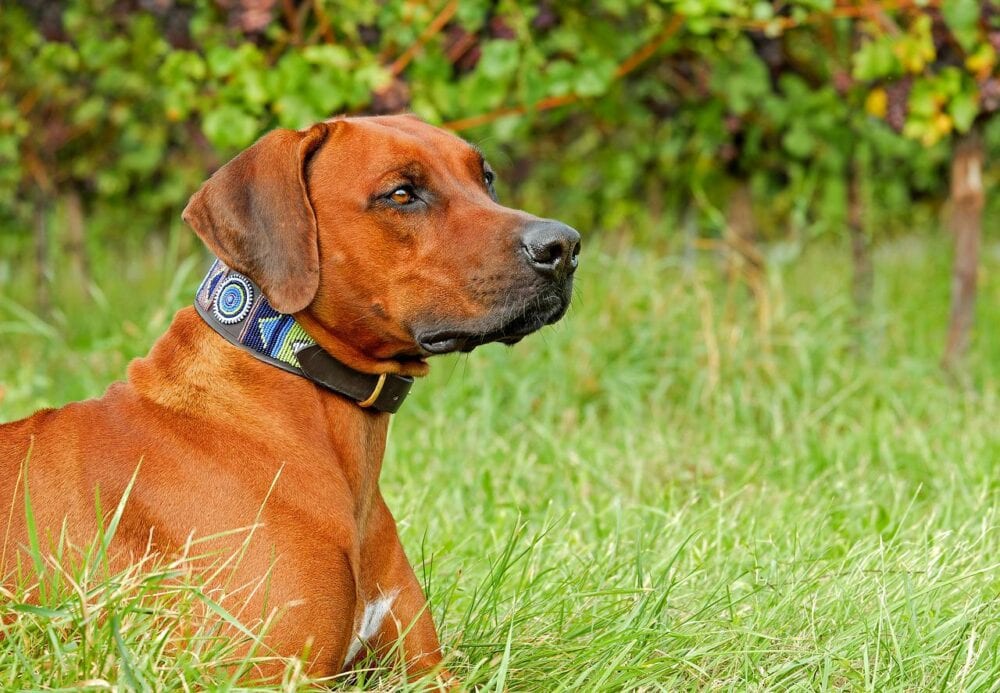
How to Tell Your Rhodesian Ridgeback’s Age
It can be tricky to accurately “age” your Ridgeback without documents or papers from a breeder or shelter, but looking at their teeth and eyes can be a good starting point. Rhodesian Ridgeback puppies will either have deciduous (baby) teeth if they’re under 4 to 6 months old or a shiny new set of teeth with no tartar or staining if they’re older.
Adults can be more difficult to age, as heavy staining may or may not be present, and some oral hygiene habits can affect tartar buildup or tooth wear. Older Ridgebacks can have problems with mobility, hearing, or loss of vision, so you could check to see whether they have any of these problems if they’re older dogs.
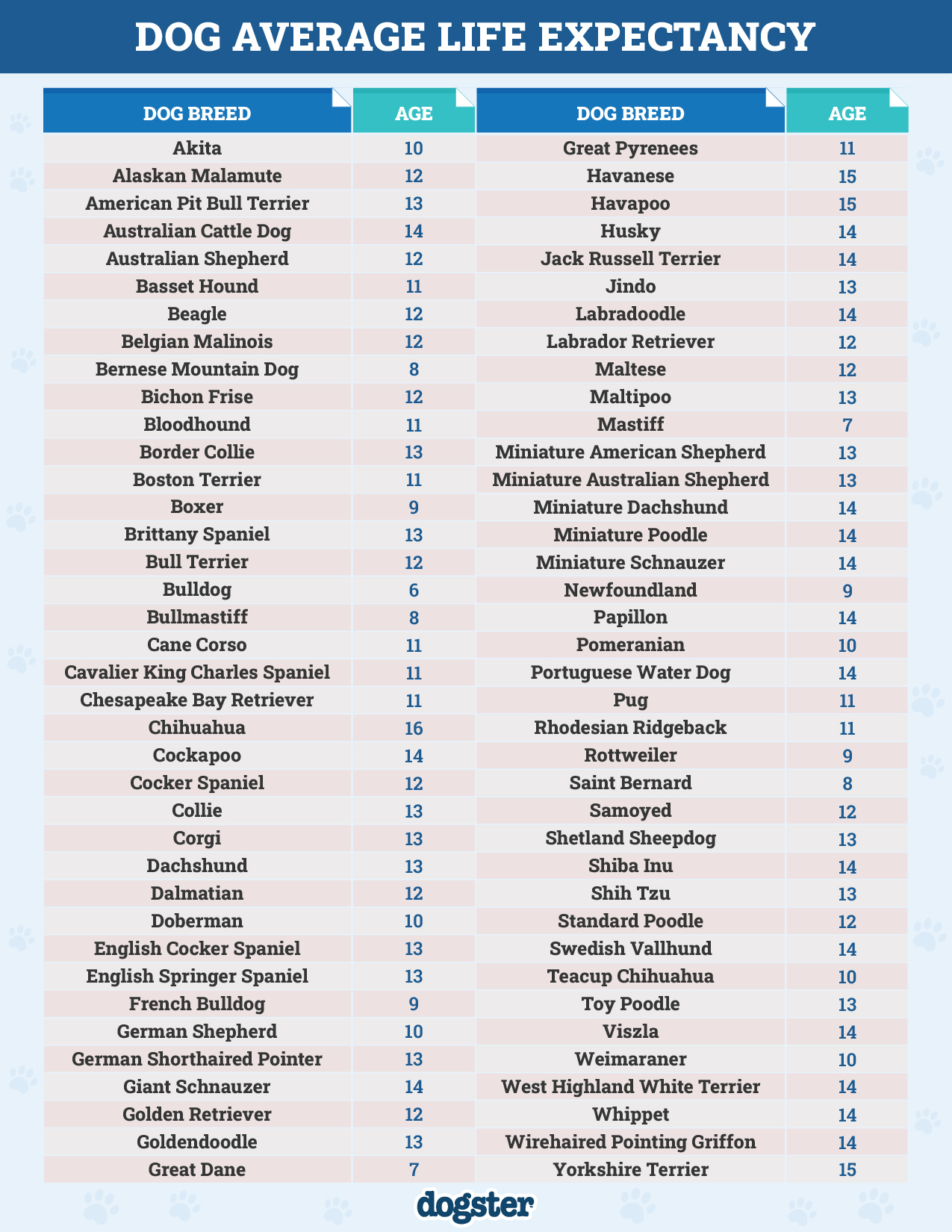

Conclusion
Rhodesian Ridgebacks can live 10 to 13 years, which is excellent for a breed of their size. They were originally bred to hunt Lions. They are active and healthy dogs, but factors such as the environment, diet, weight, healthcare, and sterilization status can affect how long each individual might live. By keeping your Ridgeback as healthy as possible and maintaining regular veterinary appointments, you can help them enjoy their life to the fullest and maximize their potential lifespan.
Featured Photo Credit: boumapetrovice, Pixabay
